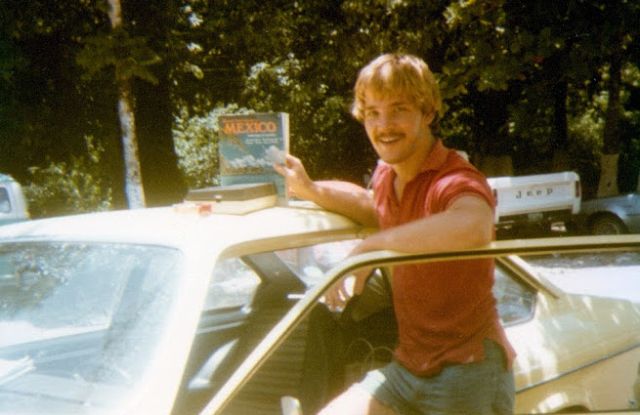My 12 most transformative books (part 2)
This is a continuation from yesterday’s blog.
 The Acts of the Holy Spirit; Peter Wagner
The Acts of the Holy Spirit; Peter Wagner
The book of “Acts” is the best text on missions ever written. Because it is written as a narrative, (not expositorily), we may have difficulty recognizing that. But this wonderful commentary on Acts unwraps the story behind the story. It helps us discover the mission principles that God put in place for his church right off the bat. Who better to write this book than Wagner, himself a missionary for years? As a missionary and as the father of five, I took my kids through it over the course of a year and then we went to Peru for a month and put it into practice. And you know what? It worked!
Listening To Your Life; Fredrick Buechner
I just love to read Buechner – he is so deep. This book is like a “greatest hits” of his other writings. It is written as a series of daily devotionals. Each day holds a small treasure. You feel like you’re reading poetry. Whether he’s comparing humans to ants to explain theology, or talking about why you should drink wine and not grape juice for communion, he’s brilliant. I don’t know if it’s possible for wisdom to rub off just by reading it over and over, if it is, then put this one next to your Bible.
The Only Necessary Thing; Henri Nouwen
If you’ve never read one of Nouwen’s books, you owe it to yourself to do so. They are uniformly elegant in thought and style. He unpackages concepts like suffering, servanthood, and grace in ways that make them come alive. Like “Listening to Your Life,” this book represents a culling of the author’s best works over the years. It tends to center around the subject of prayer, but has gems in many other areas as well. I don’t know that it has changed me particularly, but Nouwen himself has been a mentor thru books like this one.
Topgrading; Bradley Smart
From the sublime to the practical. I went to one of the top business schools in the country and never learned the simple principle contained in
Topgrading. Anyone who is responsible for hiring and managing people should read this book. The author notes that 50% of all new hires are actually mis-hires. By carefully defining the competencies a position requires and using his system to assess whether the candidate in question actually possesses them, you can ensure a good fit between the candidate and the position. I am much more cautious in my hiring now and require my subordinates to be diligent in ascertaining whether candidates have what they need to be successful.
Small Is Beautiful; E. F. Shumacher
I read this book when I was in college. It’s still a classic about living the simple life. It got me going on a “less is more” kick that still informs the way I view the world. We are so inculcated with consumerism, one needs a powerful antidote. To live without giving in to a shopping impulse by itself is a counter-culture, if not revolutionary act. The subtitle is “Economics as if People Mattered” and Shumacher asks and answers all kinds of quality-of-life questions along the way.
Rich Christians in an Age of Hunger; Ron Sider
Here’s another book that helped radicalize me, and hey, it was recently updated. A review says, “Every day more than 34,000 children die of starvation and preventable diseases, and 1. 3 billion human beings live in relentless, unrelieved poverty worldwide. Why is there still so much poverty in the world? Conservatives blame sinful individual choices and laziness. Liberals condemn economic and social structures. Who is right? Who is wrong?” Sider says both are. We have a moral responsibility as Jesus-followers to educate ourselves about these issues and then to take action.
The Birth of Plenty, William Bernstein
I majored in economics and have been asking myself the question, “Why are some societies wealthy while others are impoverished?” At last a book that answers the question. Bernstein does so by asking another question first, “Why did America’s economy suddenly take off in 1820? Bernstein isolates four factors that had to be simultaneously in place: capital markets, property rights, the scientific method, and communications. He brilliantly answers many other questions about why poverty endures. I owe Hal Ashby for turning me on to this book.
Other books I loved that almost made the list:
The Mystery of Capital; Herman DeSoto
Leadership is an Art; Max Dupree



Thanks Seth! Hopefully I can get a few of these for my palm to take on the WR. See you soon!